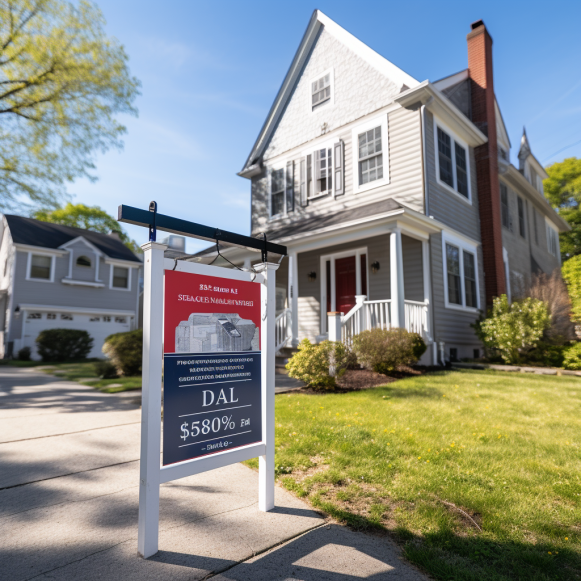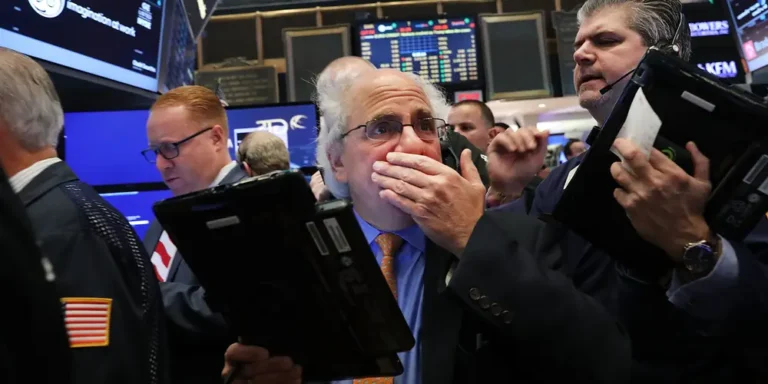Is the housing market about to crash? What the experts are saying

Bankrate.com’s Jeff Ostrowski (TNS)
After a record-breaking run that saw mortgage rates fall to all-time lows and home prices soar to new highs, the housing market in the United States began to slow in late 2022. Mortgage companies laid off thousands of workers, real estate economists lamented a “housing recession,” and home prices appeared to be heading downward.
But something strange happened on the way to the housing crash: home values began to rise again. According to the most recent Case-Shiller home price index, housing prices have risen for four months in a row. The National Association of Realtors (NAR) reports that more than half of U.S. metro areas experienced home price gains in the second quarter of 2023, reflecting ongoing price increases.
While the National Association of Realtors reports that median sale prices of existing homes have fallen year over year for five consecutive months through June, this comes with a caveat. Home prices fell slightly in June 2023 compared to June 2022, but this June’s median price of $410,200 was still the second-highest monthly figure ever recorded by NAR, trailing only last June’s $413,800.
Even though mortgage rates have risen above 7%, home values have remained stable. A lack of housing supply is to blame. Bidding wars have returned, and inventory levels remain excruciatingly low. “You’re not going to see house prices fall,” says Rick Arvielo, president of New American Funding. “There’s just not enough inventory.”
Skylar Olsen, Zillow’s chief economist, concurs on the supply-and-demand imbalance. Her most recent forecast predicts that home prices will continue to rise through 2024, which is good news for sellers but bad news for first-time buyers who are struggling to become homeowners. “We’re not in that space where things are suddenly going to become more affordable,” Olsen says.
Nonetheless, a rapid rise in mortgage rates and a sharp slowdown in home sales have some worried. Following the Federal Reserve meeting on June 14, Fed Chairman Jerome Powell told reporters that he was keeping a close eye on the housing market. “Housing is very interest-sensitive, and it’s one of the first places that’s either helped by low rates or held back by higher rates,” Powell said during a press conference. “We’re keeping a close eye on that situation.”
In any case, housing economists and analysts agree that any market correction will be minor. Nobody expects price drops on the scale of those seen during the Great Recession.
Will the stock market crash?
The last time the housing market in the United States looked this frothy was from 2005 to 2007. Back then, home values plummeted, with disastrous results. When the real estate bubble burst, the global economy entered the worst slump since the Great Depression. Now that the housing boom is under threat from rising mortgage rates and the possibility of a recession — Bankrate’s most recent expert survey put the odds at 59 percent — buyers and homeowners are asking an old question: Is the housing market about to crash?
Housing economists agree that prices could fall further, but not to the extent that homeowners experienced during the Great Recession. The personal balance sheets of homeowners are much stronger today than they were 15 years ago, which is a clear difference between now and then. The average homeowner with a mortgage has excellent credit, a substantial amount of home equity, and a fixed-rate mortgage locked in at a rate well below 5% — in fact, according to a June Redfin study, 82.4 percent of all current homeowners are locked in at rates below 5%.
Furthermore, builders remember the Great Recession all too well and have been cautious in their construction pace. As a result, there is an ongoing shortage of available homes for sale. “We simply don’t have enough inventory,” says Yun. “Will some markets experience price declines?” “Yes,” he confirms. “[However], with no supply, a repeat of a 30% price decline is highly, highly unlikely.”
Current home prices
Economists have long predicted that the housing market would eventually cool as home values succumbed to the effects of their own success. According to NAR, the median sale price of a single-family home fell 0.9 percent year on year in June after falling year on year in February for the first time in more than a decade.
Overall, however, home prices have risen far faster than incomes. The fact that mortgage rates have more than doubled since August 2021 adds to the affordability squeeze.
Prices to remain stable
While the housing market is cooling, this slowdown does not appear to be typical of real estate downturns. Home sales have fallen sharply, as have inventories of available homes. Homeowners who locked in 3 percent mortgage rates a few years ago are declining to sell — and who can blame them, with current rates above 7 percent? — causing the supply of homes for sale to tighten even further. As a result, this correction will be nothing like the complete collapse of property prices during the Great Recession, when some housing markets saw values plummet by half.
According to Yun, high-priced areas such as California are the most vulnerable to a price drop. According to Redfin data, this is already happening in notoriously expensive markets like San Francisco, where the median sale price in June was down 8.8 percent year over year, Oakland, where it was down 11.3 percent, and Los Angeles, where it was down 7.1 percent.
“Even in markets with lower prices,” he says, “multiple-offer situations returned in the spring buying season following the calmer winter market.” Yun anticipates that national prices will remain stable.
5 Reasons to Avoid a Crash
Five compelling reasons, according to housing economists, why a crash is not imminent.
—Inventories remain extremely low: according to the National Association of Realtors, there was a 3.1-month supply of homes for sale in June. That figure was a meager 1.7-month supply in early 2022. This ongoing scarcity of inventory explains why many buyers are still forced to bid up prices. It also suggests that the supply-and-demand equation will not permit a price crash in the near future.
—Builders did not complete projects quickly enough to meet demand: Homebuilders slowed significantly after the previous crash, and they never fully recovered to pre-2007 levels. They can no longer buy land and obtain regulatory approvals quickly enough to meet demand. While they are constructing as much as they can, a repeat of the overbuilding that occurred 15 years ago appears unlikely. “The fundamental reason for the price increase is increased demand and a lack of supply,” says Bankrate’s chief financial analyst, Greg McBride, CFA. “As more builders bring available homes to market, more homeowners decide to sell, and prospective buyers are priced out of the market, supply and demand can rebalance.” It is not going to happen overnight.”
—Demographic trends are generating new buyers: There is high demand for homes on a variety of fronts. Many Americans who already owned homes decided that they needed larger spaces during the pandemic, especially with the rise of working from home. Millennials are a sizable group who are in their prime purchasing years. And Hispanics are a growing demographic who want to be homeowners.
—Lending criteria remain stringent: In 2007, “liar loans,” in which borrowers were not required to provide documentation of their income, were common. Lenders were willing to lend to almost anyone, regardless of credit history or down payment size. Today, lenders have high standards for borrowers, and those who get a mortgage almost always have excellent credit. According to the Federal Reserve Bank of New York, the median credit score for mortgage borrowers in the second quarter of 2023 was a high 769. “If lending standards relax and we return to the wild, wild west days of 2004-2006, that is a whole different animal,” McBride says. “When we start to see prices bid up by the artificial purchasing power of lax lending standards, that’s when we start to worry about a crash.”
—Foreclosure activity has slowed: In the years following the housing crash, millions of foreclosures flooded the market, lowering prices. That is no longer the case. The majority of homeowners have a sizable equity cushion in their homes. During the peak of the pandemic, lenders did not file default notices, causing foreclosures to hit a new low in 2020. And, while there has been a slight increase in foreclosures since then, it is nowhere near what it was.
All of this adds up to a consensus: Yes, home prices continue to exceed affordability. However, this boom should not end in a bust.






